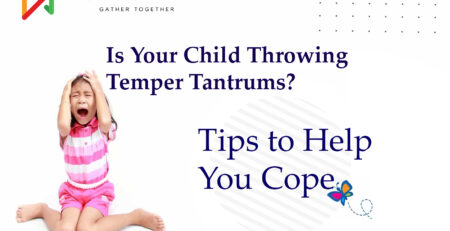Polyamory: The Forbidden Fruit
For ages, most of us have been intrigued by the idea of monogamy or monogamous relationships, where the ideal romantic relationship is mostly confined within the narrative where two people meet, see each other for a while, and get on to the next phase of living together, which may or may not end up in the ultimatum – “marriage”.
If it does, then you are expected to maintain that relationship till the end of your forever and that, my dear friends, is often referred to as the perfect “happily ever after”. The idea of such relationships has been reinforced into our minds through years and years of conditioning propagated through stories read in our childhood, the movies we have watched and even the relationships around us and this, however, has pushed us into the spectrum of finding our one true soul mate.
Yes, it certainly might have worked for a lot of people, and that is why we still see monogamous relationships around us. However, sometimes it may also be the ignorance or stigma around any other type of relationship other than the traditional norms that have forced us to run in the same loop over and over again looking for a forever mate.
If you’re among the latter group, then you are not alone. Some individuals find themselves lost in this endless circle of life, trying to find a partner to share their lives with or live the life they have always dreamt of.
Most often, these people tend to end up in disappointment and lack of self-worth. After several failed attempts at relationships, they will naturally start to believe that there is some certain quality they lack when it comes to relationships, and this can affect their mental health and can even result in depression.
We as humans have progressed far beyond what we could have imagined in terms of technological advancements, yet when it comes to romantic relationships, we still try hard to stick to conventional practices.
While monogamy is just one aspect of relationships, there are many other sides to the same coin. Polyamory is one such type of romantic connection that not only opens the door to a whole new perspective on love, intimacy and commitment but also challenges the traditional norms of monogamous relationships.
The term polyamory is a Greek term that translates to Poly – many and amor- love. This type of relationship involves multiple partners and is based upon consensual and ethical romantic connections with stress on open communication between all the partners. Polyamory is also often referred to as a relationship with intention as it builds connections between individuals, who are mostly brought together through purposes that align them with each other.
An alternative approach to regular relationships, polyamory is viewed as a progressive way that redefines the idea of love, with an emphasis on individual freedom and authenticity.
Why Consider Polyamory?
Getting involved with multiple partners gives an individual the space to explore different facets of their own emotional and romantic selves, and that has the potential to give greater emotional satisfaction and stability in relationships. Besides the emotional aspect, polyamory promotes personal growth through different experiences and explorations of one’s desires. This type of relationship also opens up the possibility of forming ‘chosen families’ that make it easier for partners to share responsibilities like financial obligations, childcare, etc.
Open communication and flexibility are the other significant dynamics of every polyamorous relationship. Similar to monogamous relationships, transparent communication is a must-have in polyamory as well. Successful polyamory relationships prioritize communication as it gives a better understanding of every partner involved. On the other hand, the flexible structure enables the accommodation of everyone’s unique requirements and aspirations in the relationship.
Though polyamory opens a world of possibilities for people who are looking forward to romance in their lives, it also comes with a lot of challenges as in any other partnership. Jealousy and insecurity, time and energy management, legal and financial complications, complexities, and communication challenges are some hurdles to overcome. The social stigma around anything that sways away from traditional practices also becomes a hindrance for people interested in exploring the world of polyamory. Misconceptions like viewing polyamory as solely about sex or an excuse for cheating add to the resistance and would be a different topic to discuss altogether.
Interestingly, statistics show that around 90% of mammals in the animal kingdom have multiple mates which is mostly based on instinct. But as humans, what differentiates us from this cycle is our ability to make choices for ourselves, knowing what works best for us, and that is why we need to use our natural ability to understand the choices that are available to us, maybe explore every option that seems appealing, before settling down for a particular type of relationship.
In a world shaped by evolving values and preferences, it’s essential to acknowledge that the concept of romantic relationships is not one-size-fits-all. Be it monogamy or polyamory, what matters most is aligning with a choice that resonates with our authentic selves.












